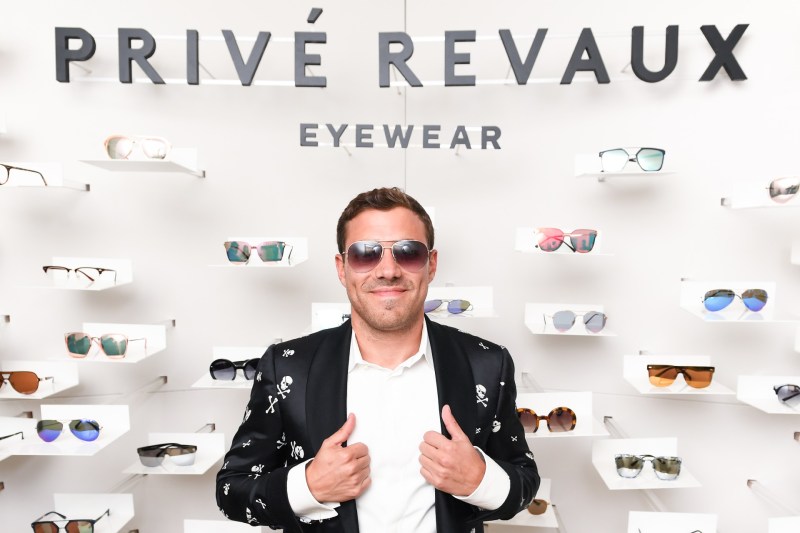
For someone who’s not a starf—er, David Schottenstein sure likes to talk about celebrities. In the first minutes of his call with The Manual, the 37-year-old founder of sunglass company Privé Revaux
Schottenstein, from his home in Miami, wears a striped polo and a tangle of multicolored bracelets, which he does not explain as he casually reach to rub the back of his close-cropped dark hair. He’s comfortable, but one would not describe him as casual. Every detail seems precise. From his conversation, one might initially assume he’s obsessed with celebrity, as often as he mentions it. But even this is intentional, as his eyewear company was founded with and is continually buoyed by Hollywood A-listers, and because of that, their names — and they themselves — are as familiar to him as your work colleagues over a Zoom meeting are to you.
“Celebrities,” he says, “are giving the consumer reason to believe.”
Even at his young age, Schottenstein has been often described as a serial entrepreneur. It began with his luxury menswear line Astor and Black, which reportedly netted him an eight-figure payout upon its sale in 2011. His streak continued with a number of companies in various industries, from one that makes business invoicing software, to another that elevates the humble collar stay, and even a short-term pool rental app a la AirBnb, for which he’s still involved and will hit his one-year anniversary in July 2021. He’s even ventured into venture capital, investing in well-known brands like Onewheel and Mizzen+Main
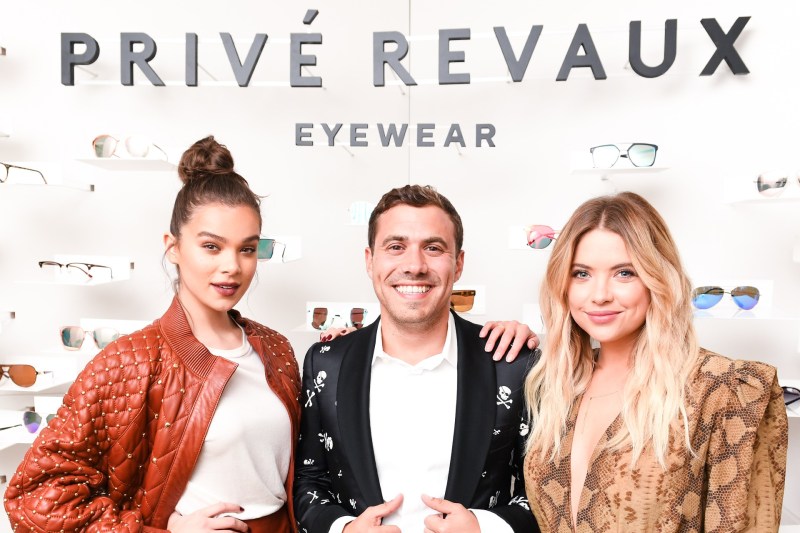
But Privé Revaux is distinct, and not just because of Schottenstein’s own enjoyment. Founded by himself, the man with the plan’s know-how, he partnered with a handful of actors and actresses, including Steinfeld, Jeremy Piven, and Ashley Benson. Blueprints began in late 2016, with an official launch in 2017, and the company has essentially risen on the backs of those same celebrities, who told their friends, who told their friends, ad infinitum. All celebrities wear sunglasses, but few have been so instrumental from the start of a sunglass brand.
Jamie Foxx, a style icon in his own right, was not only part of that original crew but regularly appears in Privé Revaux’s promotional materials. Foxx gifts liberally, so when he sent a box to his good friend DJ Khaled, the music producer raved about them to his 20-some million followers. This pattern is so common as to be cliche, and a quick search shows musician Demi Lovato, actress Rebel Wilson, and influencer Olivia Culpo all sporting the brand in the press — and therefore, to you — within the last month.
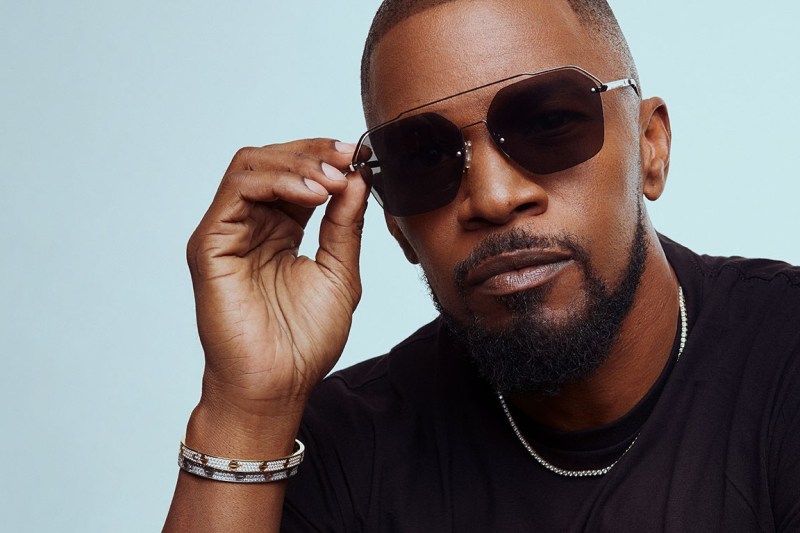
“It’s no trick,” Schottenstein says. “The key is if you actually make high quality product, and it’s fantastic, [celebrities] will wear them.”
When speaking with Schottenstein, I’m careful to not use the word “cheap,” because “cheap” carries connotations with quality. But divorcing the word from shoddy craftsmanship and materials, Privé Revaux sunglasses are cheap. Like, laughably cheap, especially when compared to the sunglasses that celebrities normally wear. Since his social media effusion for the brand, DJ Khaled has released a capsule with luxury brand Dolce & Gabbana, and his frames, which have often appeared on his Instagram over the last months, retail for $350. Privé Revaux, at its peak, costs $50, with many frames coming in at $30.
“DJ Khaled does not know what the price of [Privé Revaux] sunglasses is, right?” Schottenstein says. Same goes for Floyd “Money” Mayweather, who was photographed wearing the company’s frames at his weigh-in for the recent Logan Paul exhibition fight. “[Mayweather is] certainly not worried about the cost of the sunglasses. He just loved them.”
The question, then, is what price actually indicates. After all, if DJ Khaled will wear Privé Revaux un-compensated and then, in the next breath, hype a pair seven times the cost, for which he was well compensated, which company makes the better product? The emperor has no luxury clothes.
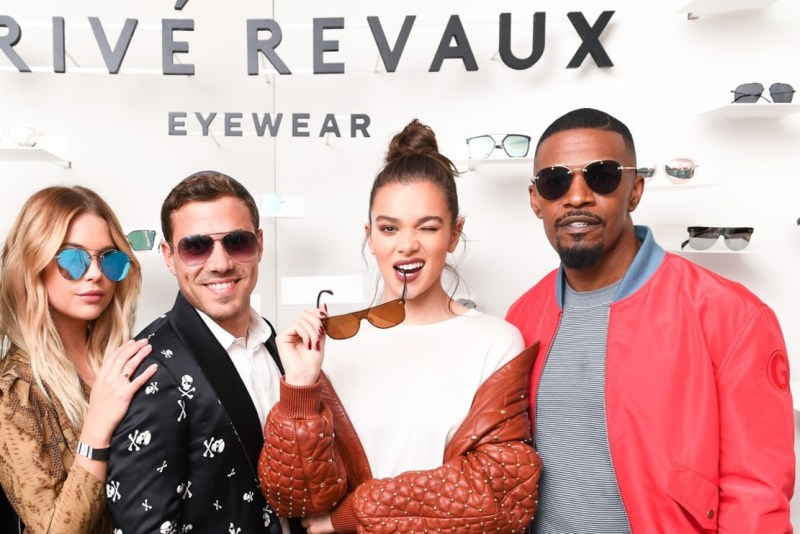
The truth is in a blend of a product’s perception and its immutable qualities. Privé Revaux’s sunglasses are perceived as quality because celebrities wear them, and celebrities wear them because they’re high quality. “The celebrities are actually choosing to wear the product,” Schottenstein says, rather than being paid to wear them. It’s circular but not redundant.
Of course, some celebrities do receive compensation through partnerships where they release their own capsules, as Skateboarder and future Olympian Nyjah Huston recently did.
“They’re getting to do something they love doing: design. And they get to put a product out their fans can afford and connect with,” Schottenstein says. “You [normally] see celebrities wearing stuff that’s not affordable, and this is obviously a different story.”
Huston, in conversation with The Manual, emphasized the eyeglasses‘ prices as a strength. “We don’t want to be wearing something that we’re so stressed about messing up,” he said.
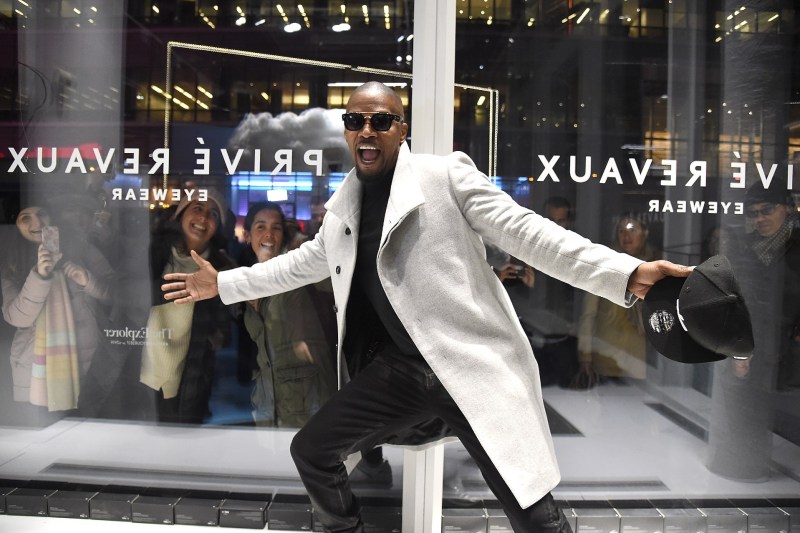
For better or worse (and time has shown that it’s been nothing but better), Privé Revaux has hitched its fortunes to the brightest celebrities, and its estimation has risen despite its lesser price. “If you’re not relevant, you’re irrelevant,” Schottenstein says. “We’re trying to stay neck-to-neck with the Ray-Bans of the world. We’re not trying to play in a lower-end space.”
A week before the brand’s launch in 2017, Schottenstein faced a sudden crisis: His projected company’s name, Privé, could not be copyrighted. Too general, he was told. In that mad rush that accompanies turning on the lights of a million-dollar investment, an anonymous person told him that Revaux translated as “retreat” in his mother’s native French. Privé, or “Private,” may not have be good enough to delineate a brand, but Private Retreat made sense, especially since celebrities had used shades as a defense mechanism from paparazzi flashbulbs for decades. Problem solved; on to the next.
“Subsequently, I found out ‘Revaux’ means nothing,” Schottenstein says, laughing. But there is his four-year-old company in sum: To celebrities, its means quality, and to the everyman, the two words have come to mean celebrity. “[The name] doesn’t actually mean anything,” he says, “but it means something to consumers.”



